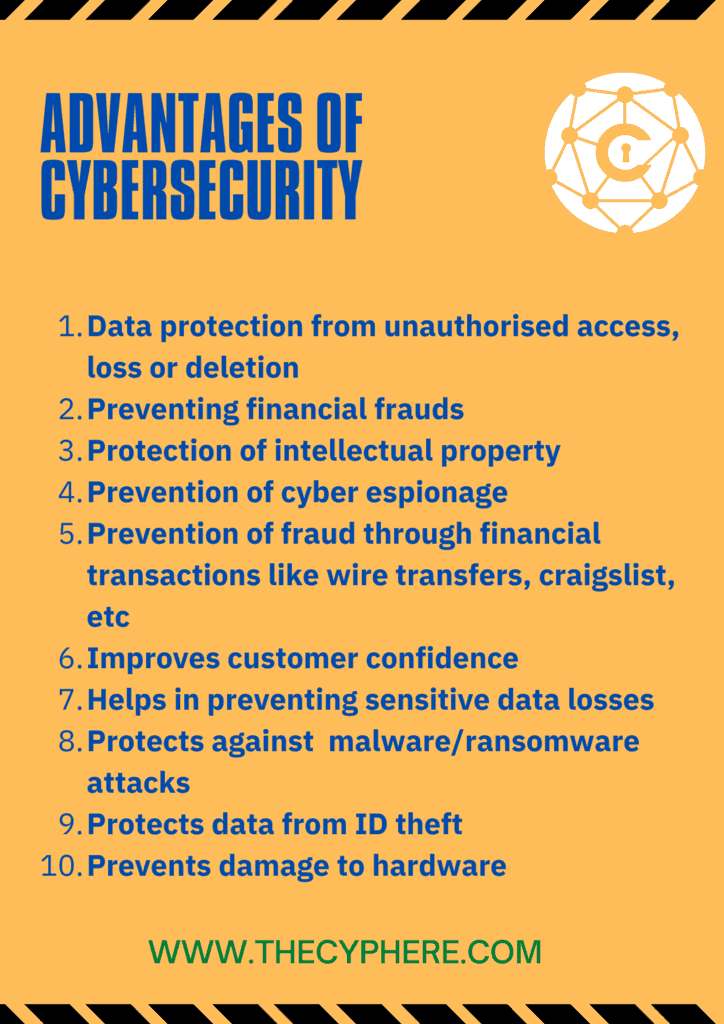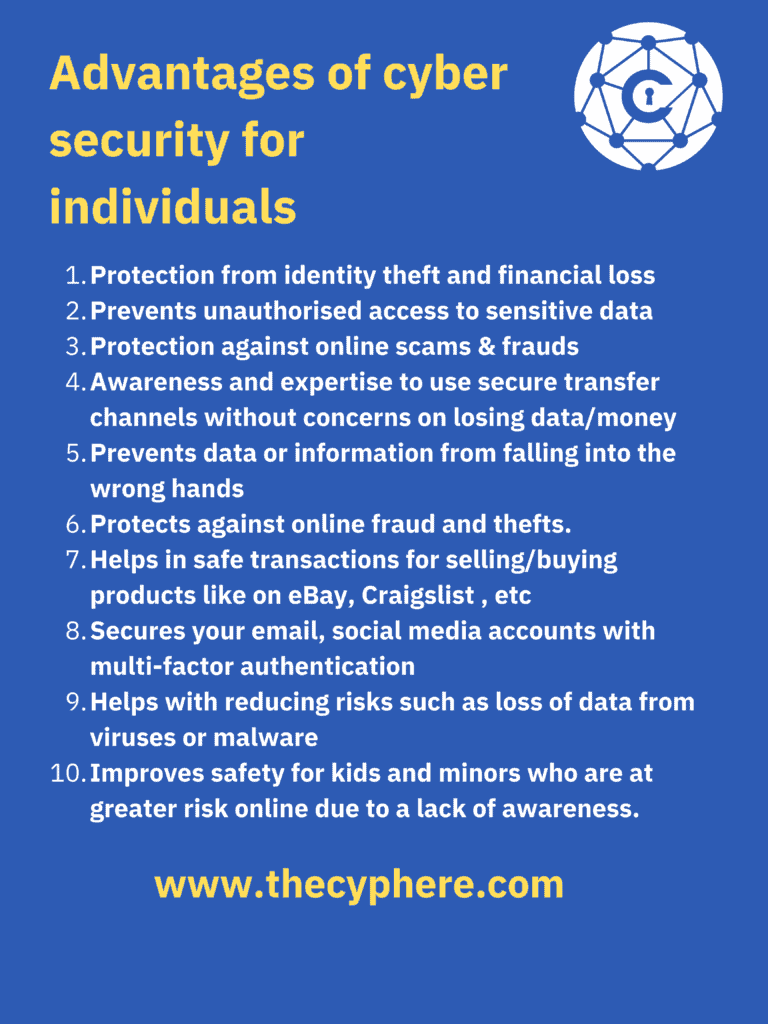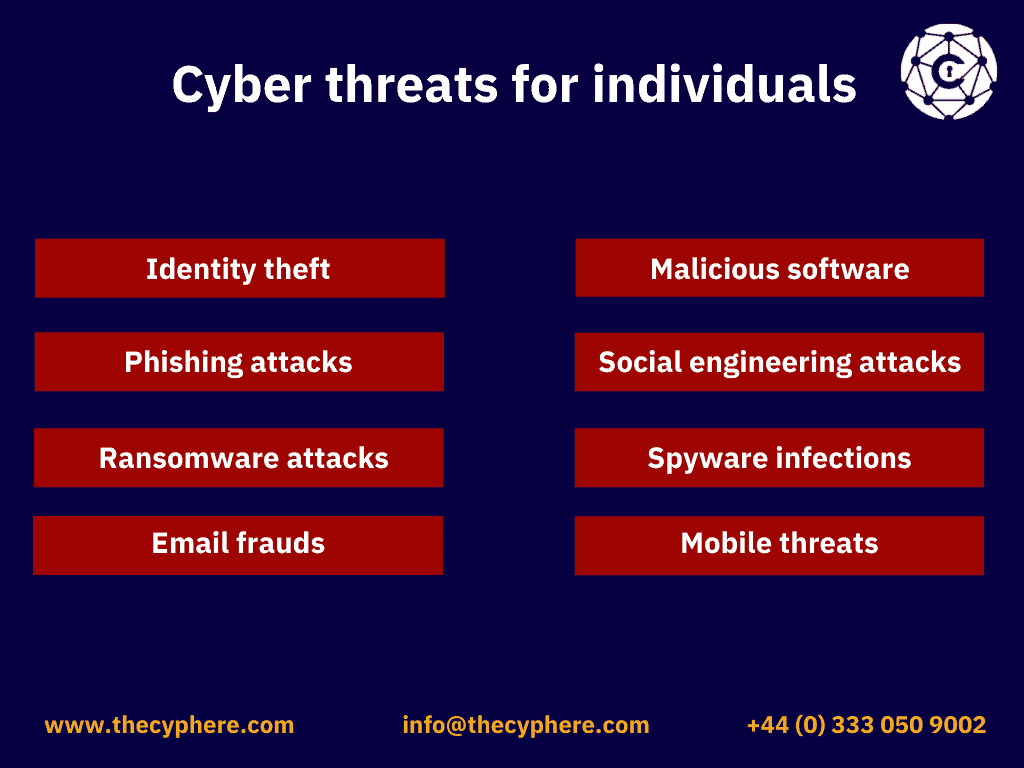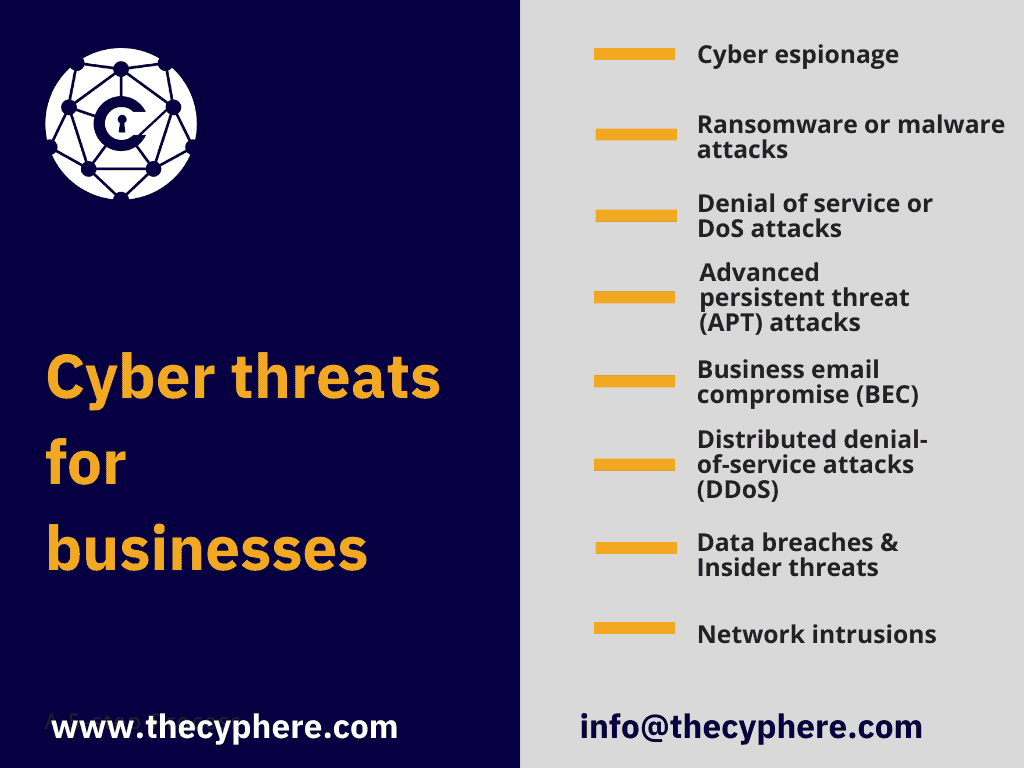
Cyber security is a crucial element of the digital age. You may not notice it, but cyber-attacks happen every day to companies and individuals alike. We’ve got you covered with this detailed guide on the importance and benefits of cyber security, mitigation strategies and tips for protection against cyber attacks.
Cyber security and business
Cybersecurity is a vast domain of study that includes secure system design and development and policies created to aid in mitigating cyber risks. It involves implementing security at every stage of the network life cycle across the business – from creation to maintenance- and covers government networks’ protection to personal computers.
Cyber security generally refers to protecting information (of a business, its customers, staff ) from unauthorised access, change or destruction. In a digital context, it can also refer to safeguarding personal and financial data and corporate intellectual property.
You can read about the principles of information security here:
https://thecyphere.com/blog/principles-information-security/
Why do companies need cyber security?
Cybersecurity is extremely important for everyone, companies and individuals alike. It has the power to protect you from viruses, malware, ransomware, data theft or loss through hacking etc. For businesses, it can mean protection against financial frauds like embezzlement by employees or customers illegally accessing company accounts information, leading to identity theft.
As we advance into a digital world, you cannot stress the importance of cybersecurity. In 2017, there has been an increase in ransomware attacks, for instance, that have hit hospitals and schools, among other vital institutions, all over the United States alone, which can prove how crucial it is to invest in cyber security.
Benefits of cyber security
There are several cyber security advantages for companies and individuals alike. It can help you protect your digital assets like emails, financial data, passwords, and other sensitive information from falling into the wrong hands.

Advantages of cyber security for businesses
For businesses, advantages of cyber security means protection against malicious attacks that may be financially detrimental to their organisation or customers, ultimately leading to reputational damage that can impact the revenue. Following are some common advantages of cyber security:
- Data protection from unauthorised access, loss or deletion
- Preventing financial fraud and embezzlement
- Protection of intellectual property
- Prevention of cyber espionage
- Prevention of fraud through financial transactions like wire transfers etc.
- Improves customer confidence
- It helps in preventing financial loss
- Protects against viruses, various types of malware and ransomware attacks
- Protects data from being exposed through hacking or theft etc
- It prevents damage to hardware that can impact productivity
Cyber threats for small businesses
Cyber espionage
Cyber espionage is a type of cyber exploitation in which an attacker takes advantage of a user’s computer by executing a program without the user’s knowledge. The operation runs in the background without attracting attention, and Cyber-criminals capture sensitive information after gaining access to it.
Ransomware or malware attacks
Ransomware or malware attacks affect businesses in many ways. For example, the data of affected systems can be stolen, which could lead to the loss of intellectual property or trade secrets vital for business success, along with exposing sensitive information like customer records, etc.
Denial of service or DoS attacks
This type of attack aims to make an online service unavailable by flooding it with traffic from multiple sources, resulting in denying access to users who want to avail of its services. It’s one of the oldest forms of cyberattacks targeting businesses.
Advanced persistent threat (APT)
APTs are often used to steal intellectual property or trade secrets that can be sold illegally to competitors. They also aim at accessing sensitive information that could be exploited for monetary benefits by the attacker, who is usually backed up financially and technologically well-equipped, resulting in attacks being difficult for businesses to detect before it’s too late.
Business email compromise (BEC)
It’s another form of phishing attack that targets senior executives through BEC scams and spear-phishing emails aimed at staff who have high-level access to money or sensitive data.
Distributed denial-of-service attacks (DDoS)
A type of cyber attack where the malicious traffic comes from many hosts, which are usually infected with malware or compromised computer systems.
Data breaches caused by insider threats
Data breaches can be very dangerous for businesses because they involve employees, partners, or vendors who may have the necessary access to data, leading to the loss of intellectual property and customer information.
Network intrusions
These are when attackers manage to get unauthorised access into company networks, where they often steal critical assets, including customer records and sensitive proprietary business information, among other things.
How can businesses implement cyber security?
There are several measures that companies can implement to ensure cyber security management. Businesses need to invest in a team of professionals who have the expertise and knowledge necessary to manage security risks, threats and vulnerabilities, along with implementing policies and procedures and controls that will help organisations be prepared against possible attacks.
The following list highlights some steps that can prove beneficial for businesses:
- Identifying vulnerabilities and threats proactively
- Implementing a firm security policy that covers all aspects of an organisation along with training staff to follow the same.
- Following cyber security architecture based roadmap to ensure systems are secure by design.
- Ensuring software, hardware, and network security systems are up-to-date on patches which helps in reducing risk exposure while also protecting against emerging viruses or cyber risks.
- Conducting internal audits to ensure processes are in place for compliance with regulatory requirements and industry best practices.
- Ensuring the system architecture has sufficient security controls so that critical information is protected against cyber-attacks by rogue employees or external hackers/threats etc.
Advantages of cyber security for Individuals
For individuals, it means safety from identity theft which has become more common in recent times, with online shopping becoming a standard for many due to convenience and affordability. With cyber security measures implemented at home, you are well guarded against fraudulent transactions or data loss through malware etc. The following is a list advantages of cyber security for individuals:
- Protection from identity theft, financial loss, customer data loss or impacts on business operations
- Prevents unauthorised access to data or personal details and records like passwords etc.
- Helps businesses in various forms such as secure software development, information security arrangements around authentication and authorisation areas, reducing cybersecurity risks, DDOS attacks, and building an organisation’s cyber resilience.
- Helps in the secure transfer of money through various payment options without worrying about security breaches.
- It prevents data or information from falling into the wrong hands.
- Protects against online fraud and theft of passwords etc.
- Helps in safe transactions for selling/buying products like eBay, Craigslist etc.
- Secures your social media accounts with strong password protection without worrying about hacks, viruses etc.
- Prohibits loss of data from viruses or malicious code
- Improves safety for kids and minors at more significant risk online due to a lack of awareness about data security measures.

Cyber threats to individuals
Identity theft
This is the most common cyber threat involving stealing identities, leading to financial losses or even compromised accounts.
Phishing attacks
These are when attackers send fake emails pretending to be someone you know and asking for information like passwords, account details etc. It’s one of the oldest types of social engineering attacks that continue to fool unsuspecting users.
Ransomware attacks
This is the most common type of cyber attack, which involves hackers encrypting your data or locking it up until you pay a ransom to get them back.
Email frauds
Emails are often sent pretending to come from legitimate sources along with asking for personal information like credit card details, account passwords etc.
Malicious software
This includes viruses, spyware or any malware that can harm your device along with stealing personal information and infecting the system with ransomware, among other things.

Social engineering attacks
This can be a severe cyber threat for individuals where attackers can bypass physical security controls or contact you over the phone, chat or on social media pretending to be someone you know and asking for personal information like account passwords.
Malware or spyware infections
Such attacks occur when you download and install software on your device without knowing that it’s malware or spyware. This is often done to gain access to someone’s system and explore internal digital security measures before lateral movement and cybercrime activities such as internal infiltration.
Mobile threats for Android devices
These are threats include malicious apps, ransomware, and identity theft, along with other types of mobile hacking attacks which can happen to both Android phones as well as tablets.
How can individuals implement cyber security?
You, too, can take measures to protect yourself against cyber risks and attacks by following the below-mentioned steps:
- Always use strong passwords for accounts that include a combination of uppercase and lowercase letters, numbers and symbols.
- Avoid using the same password across multiple websites and accounts. If your password is compromised and used on other sites, you could face many problems.
- Avoid sharing private information such as bank details, passwords, etc., unless you are sure about the person. It is recommended to verify the contact details and identity of a person before sharing any information online.
- Ensure you have antivirus protection on your system that will prevent malware, viruses etc., from compromising data or stealing company credentials.
- Make use of closed-source networks such as at home, where there is less risk exposure compared to public WiFi hotspots that are unsecured, untrusted and hence pose a greater risk.
Is there any drawback of cyber security?
One of the critical issues with cyber security is that it is constantly changing. This means that businesses and individuals have to update their security measures to stay protected continually. Additionally, cybercrime is continuously on the rise, which means that companies and individuals are increasingly becoming targets.
Data security is essential for both individuals and organisations to protect themselves against possible attacks by hackers or viruses etc. It also helps reduce losses due to data breaches and loss of business through theft of customer information and intellectual property.
What is the future of cybersecurity?
As we have seen the benefits and importance of cyber security, it is clear that more companies or individuals will start investing in this area as they realise how critical it is to protect against threats.
The future of cybersecurity looks promising with an increasing number of technologies such as cloud computing, analytics, IoT, and connected devices, which help organisations become more competitive and ensure that security is not compromised. Along with this, the future of data security will also include the development of new technologies that can protect against emerging threats such as risks in cloud computing, along with improving detection and response capabilities which again could be used to reduce risks for organisations or individuals. It makes sense that cloud computing and mobile technology advances take help from cybersecurity processes and solutions to avoid data breach situations.
Conclusion
In conclusion, cyber security solution provides a great deal for businesses and individuals alike—these range from penetration testing and incident response to managed security services. Protection of applications, services against SQL injection, trojan horses, various forms of computer viruses or other cybercrime threats is essential for a business to maintain customer trust.
It’s essential protection against all types of attacks that can happen on any device, including computers, mobile phones or tablets, along with applications that you download from the internet.
Get in touch for a casual chat on your business security concerns.
Shahrukh, is a passionate cyber security analyst and researcher who loves to write technical blogs on different cyber security topics. He holds a Masters degree in Information Security, an OSCP and has a strong technical skillset in offensive security.













